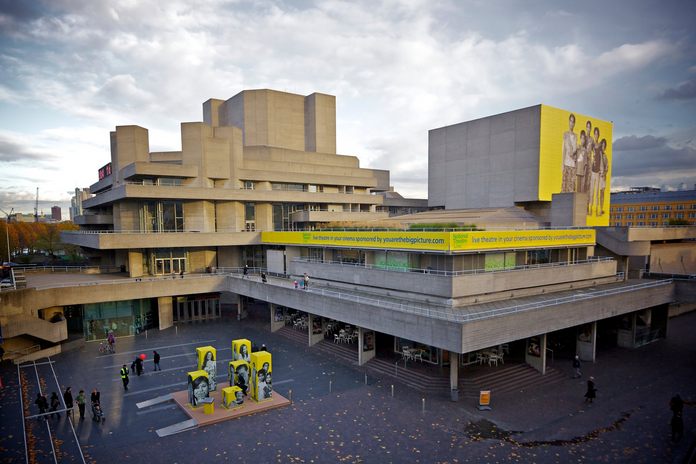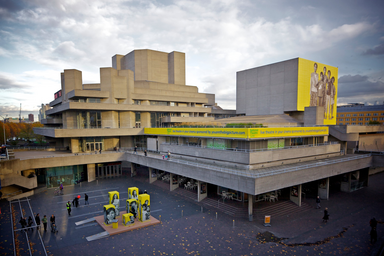Watching One Man, Two Guvnors with my brothers – but also with my family across the country – I felt connected to something so much larger than myself. It was financially accessible, and more importantly, accessible to those in my family who have special needs.
My grandparents kicked up a lot of fuss about shielding. They’re both in their seventies, still sharp and physically fit (sort of), so they made the assumption that somehow, the Coronavirus wouldn’t touch them. We all had to tell them off and shout down the phone at them to self-isolate, so as a result, our family group chats across the country became about whatever was being screened by the National Theatre that week. My grandma uses hearing aids, and insists that no one on TV or onstage speaks clearly anymore, but the addition of subtitles to productions like One Man, Two Guvnors and Frankenstein helped her immensely.
Not only this, but my brother has special needs. He loves going to the theatre: the socialising, the audience participation, but in the age of handwashing and mask-wearing, his love for greeting everyone he meets with gusto and bouncing up and down in his seat hard enough for the whole row to feel it had to take a back seat. Being able to pause a show, and watch it at home, allowed him to still participate in theatre in a way that was otherwise impossible during lockdown.
There’s been an ongoing discussion for years now about how we can make theatre more accessible – thinking beyond the usual solutions for making things wheelchair ‘accessible’ and doing what’s only immediately easy, rather than asking harder questions. How do we make performances accessible for people with ASD and people who hate loud noises? Before lockdown, I took my brother to a closed performance of Mother Goose at the Marlowe Theatre in Canterbury.
He doesn’t have ASD, but many of his classmates do, and the adjustments made for them and the feeling of community in the theatre amongst all of the special education schools who had come all the way to Canterbury to see the show was palpable. A lot of the audience participation was minimised, and the play was paused in order to give people time to decide whether or not members of the audience could handle the sensory overload of two motorbikes onstage. Other performances I’ve seen with my brother before lockdown have included Makaton and BSL signing during songs and adjustments made for actors in wheelchairs and with other needs.
The only problem my brother really has is some disapproving looks from audience members who don’t like his bouncing, which he doesn’t notice, and if an actor approaches him after the show (he hates the breaking of the fourth wall with a fiery passion).
So, during lockdown, how could we keep showing him theatre? The National Theatre came to our rescue with One Man, Two Guvnors. Being able to watch performance from home during lockdown made things significantly better for us: working the weekly livestreams into our weekly plans, being able to pause when my brother tired himself out from laughing so much.
The extended family group chat was alive with relatives across the country comparing notes and talking about how much they were enjoying themselves. When you can’t socially distance easily, and have to wear a card around explaining why your eighteen-year-old brother can’t wear a mask, the National Theatre is your saving grace.
Subtitles proved immensely helpful for my grandparents – I was able to actually have a conversation with my grandpa about theatre, because they’d been able to understand what was said. Despite the physical distance, theatre during lockdown brought us a lot closer.
The idea of what an ‘audience’ can be is changing constantly in the age of social media: the experience of seeing something in person and online both have their merits. We should not jump to the conclusion that in order to ‘solve the problem’ of people with special needs wanting to participate in theatre we should put all performances online. My brother deserves the right to enjoy the social interaction of going to see something live. But, during a time such as lockdown, the National Theatre streaming service was a Godsend.
We need to be prioritising the arts. They kept us going during the lockdown, but we have been consistently devaluing the contributions of artists and dismiss them as ‘unviable’ during an economic crisis. But, the consumption of the arts is all around us. The Coronavirus pandemic has started a lot of conversations about questioning the systems we currently have in place, and that includes how we force people with special needs to assimilate with our able-bodied culture. It’s not about assimilation – it’s inclusion. And if we could do it at such a difficult time, we can continue to do so.
This article is part of a themed content week celebrating our fantastic Contributing Writers. The role is flexible, fun, free and open to anyone!



